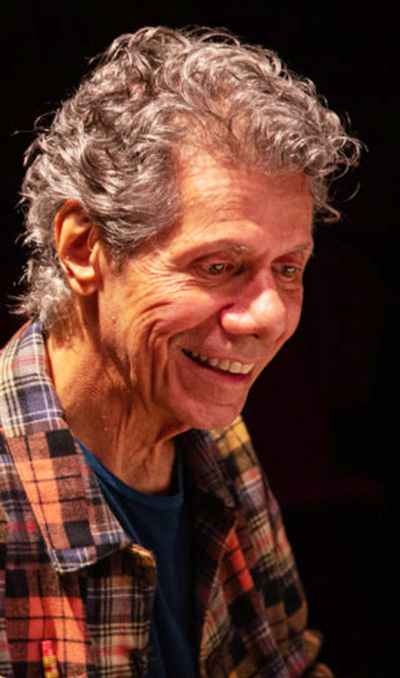Chick Corea your musical career was like a long journey through different styles of music: Spanish, latin music, avantgarde, fusion, acoustic and electric, free jazz, rock music, classical music. This speaks for a constant challenge you looked for. Now you re-vitalized your music with „The Spanish Heart“-Band. What caused this decision to explore Spanish and Afro Cuban styles once more?
My love of Latino rhythms and music has been with me for a very long time. This tour and album was a long time in thought and preparation. It’s such a joy to play my music with the Latino, afro-Cuban, flamenco taste. And this is the perfect band to do it with.
The personnel on your beautiful record „Chinese Butterfly“ marked a new beginning. In the meantime you found in Flameno musicians like guitar player Nino Josele and saxplayer Jorge Pardo – two musicians who worked with Paco de Lucia – drummer Marcus Gilmore, trumpet player Michael Rodriquez, trombone player Steve Davis musicians who have a lot of empathy. Was this very helpful to express a new mixture of spanish music and jazz elements? Was this like a dream come true?
Yes you’re right, It started out as a special summer tour – – then the idea to record seemed enticing. But the key point of the project is the band itself. This amazing group of musicians and singers made it possible for me to compose and arrange in the spirit of Spanish and Flamenco music without limits.
Your new record is called „Antidote“. With this title you want to express that art helps to overcome inhumanity, has a healing force for mankind. Is an „Antidote“ more important than ever in our world today?
You’re right, and the answer is in the lyrics to the song – –
Antidote
Lyrics by C. Corea
We dance and we sing and we play
Keep looking to find the way
Spreading the joy everywhere
We are here to stay
We don’t want a war
We don’t need the cruelty
As you can see when we all come around
It’s the gift we give
It’s the Antidote we bring to all
„Antidote“ has a wide musical spectrum. You revisited songs like „Spain“, „Desafinado“ and „Armando’s rhumba“ dedicated for your late father. Why did you choose a ballet theme from 1928 from Strawinsky’s „The Fairy’s Kiss“?
I have been re-studying the great and imaginative orchestrations of Igor Stravinsky. I’m trying to learn more about orchestration for my own orchestral writing. In my research, Stravinsky’s orchestration for his ballet “The Fairy’s Kiss” really impressed and inspirited me. I converted one of the sections of the ballet to a piano arrangement and saw how neatly it fit into the melody called “Admiration” that I had composed for the album – so I combined them 2 pieces into a kind of suite.
In the late 60ies you began thinking about communication with the audience? Is the spanish/jazz music you play now a mean of great communication? Does the rhythm help very much to communicate?
Rhythm is the basis of all musical communication. Even when a melody doesn’t seem to have “a beat” – it still has a “phrasing” that contains rhythm – – speeding and slowing up. But the basis of all communication is an intention which then must be realized through the note or the gesture. Rhythm really helps with rapport.
You played solo piano, in different duo constellations with other piano players like Herbie Hancock, Friedrich Gulda, with Gary Burton, Béla Fleck, with different own bands, even with Symphony orchestras? Will you go forward on this path in the near future?
Solo piano is where it all begins for me to express my musical ideas. It’s been my first instrument since I was a very small boy, and remains so to this day. I develop many of my musical ideas on the piano as a melodic and harmonic voice and also as a percussion instrument.
Thanks you Gudrun, for your questions and interest – –
All the best,
Chick

